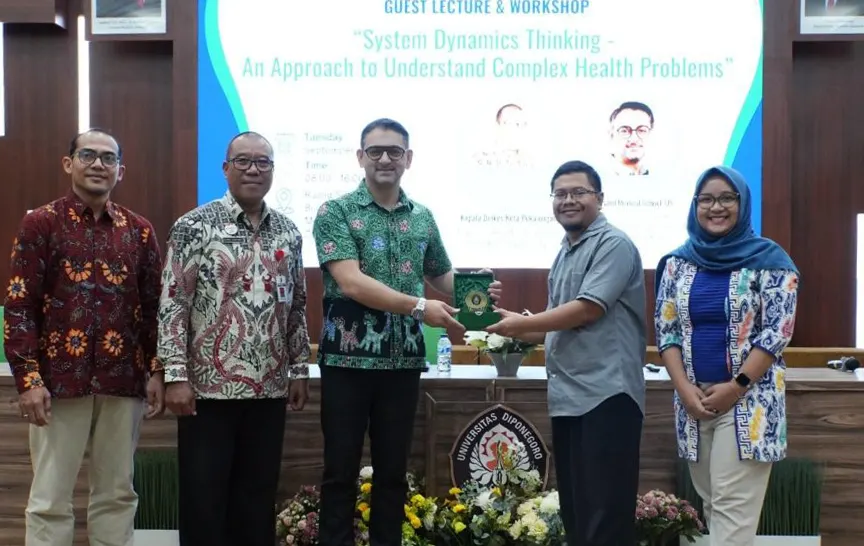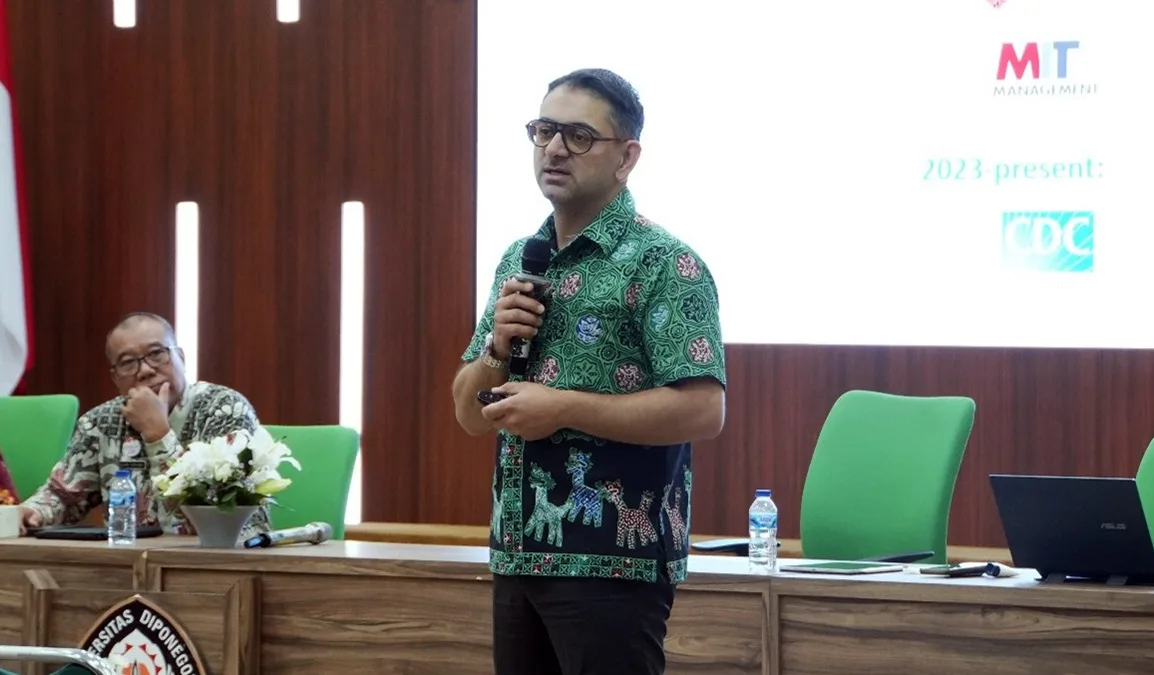UNDIP, Semarang (September 10, 2025) – The Pharmacy Study Program at the Faculty of Medicine, Universitas Diponegoro (UNDIP), continues to demonstrate its commitment as an institution of medical education that is excellent, innovative, and adaptive to global challenges. This commitment was reflected through the organization of a Guest Lecture and Workshop themed “System Dynamic Thinking – An Approach to Understand Complex Health Problems,” held on Tuesday (September 9, 2025) at the Multipurpose Room, Mayjen dr. R. Soewondo Sastrodiprojo Building, Tembalang.
The event featured two speakers: Dr. Slamet Budiyanto, S.K.M., M.Kes., Head of the Pekalongan Regency Health Office, and Associate Professor Mohammad S. Jalali, Ph.D., from Harvard Medical School, United States. The presence of both local and international public health experts reinforced the position of UNDIP’s Faculty of Medicine as a center for global collaboration and knowledge exchange.
Dean of UNDIP’s Faculty of Medicine, Dr. dr. Yan Wisnu Prajoko, M.Kes., Sp.B., Subsp.Onk(K) emphasized the importance of the event for the academic community. He stated that the activity was expected to provide new perspectives, foster a collaborative spirit, and encourage the academic community to think more comprehensively in solving health problems.
“Today’s program will offer fresh insights and push us to think beyond linear patterns. Hopefully, this event enriches our understanding and strengthens UNDIP’s commitment to improving health systems for the benefit of society,” he said.
In the first session, Dr. Slamet Budiyanto highlighted health challenges in Pekalongan Regency, ranging from high rates of anemia among adolescents to addressing malnutrition in toddlers through the ‘Ananda Ceria’ Nutrition Shelter, which has been operating since 2012. The program serves as a tangible example of community-based health interventions that can be replicated in other regions.
Meanwhile, Associate Professor Jalali from Harvard Medical School introduced the “System Dynamics Approach as an Analytical Method for Understanding Complex Health Problems.” By utilizing feedback loops, time delays, and relationships between variables, this method allows policymakers to assess the long-term impacts of their decisions.
The event continued with an interactive discussion session attended by both in-person and online participants. The high level of enthusiasm was evident from the numerous questions and ideas raised, reflecting the relevance of this topic in addressing current global health challenges.
Through this event, UNDIP’s Faculty of Medicine reaffirmed its role not only as an educational institution that produces professional medical personnel but also as a center of innovation and scientific collaboration, bridging local practices with global perspectives.
By bringing together world-class speakers and relevant health issues, UNDIP’s Faculty of Medicine continues to establish itself as an internationally oriented medical faculty dedicated to improving the quality of life in society. (Public Communication/ UNDIP/ FK Team)











